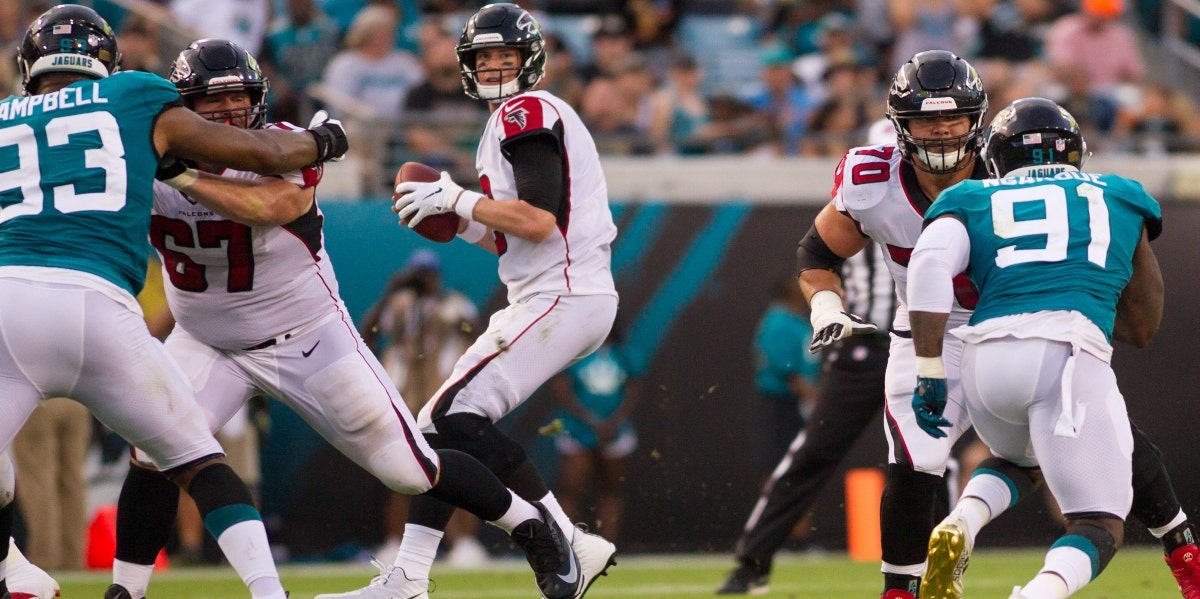How The NFL Has Profited For Years By Claiming Black Players Aren't As Smart As White Players
If there's any good news here, it's that the NFL is slowly changing its ways
 Jamie Lamor Thompson / Shutterstock
Jamie Lamor Thompson / Shutterstock The NFL has said it will stop applying race-norming to brain injury lawsuits as part of its continued effort to diminish racial biases in football.
The controversial practice of race-norming assumes that Black players have a lower level of cognitive function, making it more difficult for these players to pursue claims against the organization.
In applying race-norming to cognitive tests, the NFL has served injury claims from Black players by essentially arguing that they had limited brain function to begin with.
The league has also agreed to review previous brain injury claims that were settled using race-norming.
The pledge to end race-norming is part of the payout for a class-action settlement worth over $1 billion to address concussion litigation taken by former players.
The 2017 settlement used so-called racial cognitive norms when evaluating the extent to which a player was suffering from a brain injury, which, in turn, determined the amount of compensation that player would receive.
More than 2,000 former NFL players have lodged dementia claims, but fewer than 600 have received compensation.
And while it is not known how many of these claims are from Black players, nor is it known how brain injury payouts have been apportioned along racial lines, lawyers say that roughly 70% of NFL retirees are Black.
What is race-norming?
Race-norming is a heavily disputed practice in neuropsychology that is intended to recognize how race impacts cognitive function. It is used to determine cognitive impairment or brain disease while taking race into account.
However, the assumptions it makes about all Black people based on research involving of a select group of people has been contentious for decades.
In race-norming, race is used as a vague proxy for factors like education levels or socioeconomic background.
It was used as a practice to adjust test scores to account for race in the 1980s before being outlawed under the Civil Rights Act of 1991.
In the NFL, the league applies race-norming by comparing a given player's cognitive test scores with the supposed norm for his demographic group.
The “norm,” in this case, assumes that Black players have a lower standard of brain function than their white teammates.
Attorneys say the standard means that in order to qualify for compensation, Black players must show a more severe level of cognitive decline than white players.
"This is classic systemic racism. Just because I'm black, I wasn't born with fewer brain cells," says former NFL star Ken Jenkins.
Black players have been critical of race-norming.
The use of race-norming in NFL brain injury claims first came under fire last year when two former players, Najeh Davenport and Kevin Henry, alleged that race-norming had prevented them from claiming deserved compensation.
In a joint lawsuit, Davenport and Henry accused the league of discriminating against hundreds of Black players.
Davenport claimed that he had been diagnosed with dementia by a doctor but the NFL insisted that his test scores be adjusted using race-norming which meant that his diagnosis was reversed.
The NFL has maintained that race-norming was never mandated and was used at a doctor’s discretion, however, emails sent by doctors involved in the settlement program showed that medics felt race-norming was not optional and expressed concerns about discrimination against Black players.
The NFL has pledged to end systemic racism.
Last year, the NFL pledged $250m over a decade to social justice initiatives and expressed their support for the movement to end police violence toward Black Americans.
However, despite the pledge, former San Francisco 49ers player Colin Kaepernick remains unsigned after taking a knee during pre-game renditions of the national anthem in 2016, in a protest against racism.
Thus, many have remained critical of the league and its performative activism. That said, the end of race-norming and the chance for Black players to finally be appropriately compensated does offer a glimmer of hope for the future of the league.
Alice Kelly is a writer living in Brooklyn, New York. Catch her covering all things social justice, news, and entertainment. Keep up with her Twitter for more.

